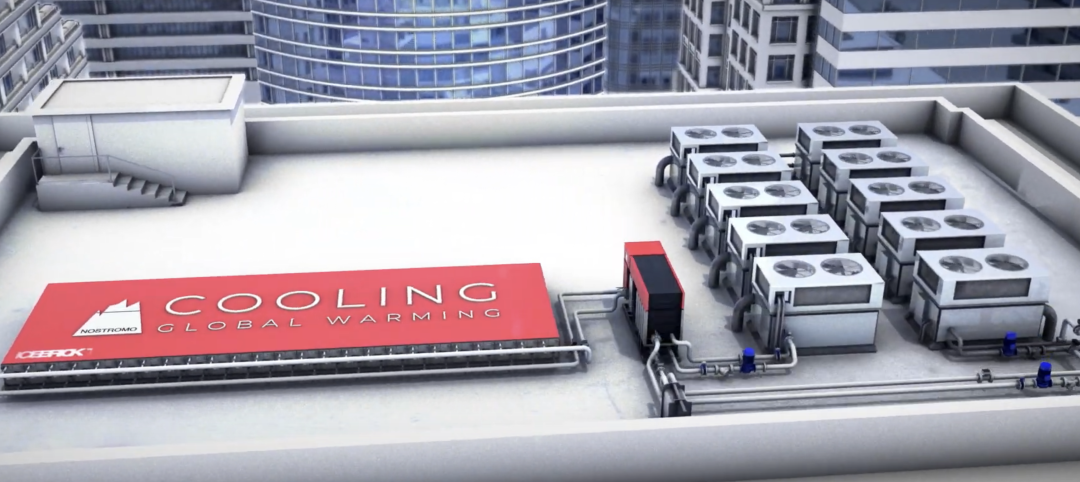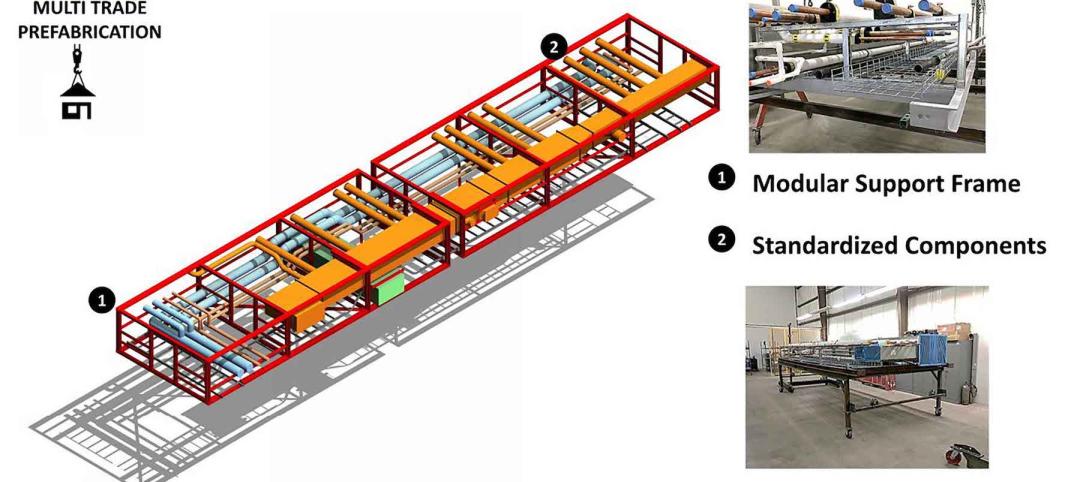WASHINGTON, DC - Last week, Senators Jeff Merkley Mark Pryor, Debbie Stabenow, Sherrod Brown, Bernie Sanders, and Ben Cardin introduced the "Building STAR Energy Efficiency Rebate Act of 2010" to create jobs by promoting the installation of energy-efficient renovations in commercial and multi-family residential buildings.
By utilizing rebates and low-interest loans, the "Building Star" program leverages between two and three dollars in private investment for every federal dollar spent. Rebates included in the bill would amount to $6 billion, in order to stimulate $18 to $24 billion in total investment, resulting in more than 150,000 new jobs. These jobs will pay well, allow companies to rehire laid off workers and infuse sorely needed capital into small businesses and hard-hit communities across the country. The savings accrued by building owners and the profits earned by laborers and manufacturers will power even more economic growth.
"Clean energy is not only the next great growth industry, but it's an engine for job creation today," Senator Merkley said. "Energy-efficiency programs like ‘Building Star' will put Americans to work in construction and manufacturing and save small businesses money as we strive for American energy independence."
"Building STAR" is supported by PIMA and other member organizations of Rebuilding America, a ground-breaking coalition of unions, contractor associations, manufacturers, financial services companies and energy efficiency advocates.
"Building Star" is similar to "Home Star," a parallel program that offers energy- efficiency assistance to homeowners. President Barack Obama announced his support March 2nd for the residential property "Home Star" program, including the financing options recommended by Senator Merkley.
"Senator Merkley's Building Star proposal recognizes the role commercial building retrofits can play in providing immediate job creation while ensuring the nation's existing buildings can fulfill their potential as energy efficient 21st century structures," said Polyisocyanurate Insulation Manufacturers Association President and CEO Jared Blum. "Commercial buildings retrofits are an essential part of any Congressional effort to chart an effective course for the nation's construction industry recovery program."
"Today, one in five construction workers - over 1.7 million people - are out of work. America's buildings are wasting both energy and money. As the Senate considers a jobs agenda for 2010, it should incorporate policies that will drive wide-scale building retrofits, such as the Building STAR proposal, that create good local construction jobs and reduce energy costs," said Reid Detchon, Executive Director of the Energy Future Coalition. "Building STAR is a package of rebates for energy efficient retrofits of commercial and multi-family residential buildings designed to create jobs and help small businesses nationwide."
Building STAR would:
• Create 25,000 jobs in 2010 for every $1 billion of federal investment for the hard-hit construction and building services, manufacturing, and distribution sectors. For a $6 billion federal investment, for example, Building STAR would create at least 150,000 jobs.
• Maximize federal investment, by leveraging $2-3 in private investment for every federal dollar spent. Building STAR would thus spur a total market activity of $18 - $24 billion, with a $6 billion federal investment, making this a great model for a public-private partnership and maximizing resource efficacy.
• Provide direct benefits to the thousands of small businesses, including the 91 percent of commercial contractors that have fewer than 20 employees.
• Use a simple application process so that building owners can participate easily.
• Work quickly, because the rebate and incentive levels are established in legislation, rather than by agencies, making it possible to implement Building STAR immediately. In addition, this program is based on existing, already- proven utility rebate programs and tax incentives.
• Deliver real energy savings and greenhouse gas emissions reductions, because of the typically large size and scope of commercial and multi-family building retrofits. For example, such retrofits could save industry $3.3 billion a year, based on data compiled by the American Council for an Energy Efficient Economy.
About PIMA
For over 20 years, the Polyisocyanurate Insulation Manufacturers Association (PIMA) has served as the unified voice of the rigid polyiso industry proactively advocating for safe, cost-effective, sustainable and energy efficient construction. PIMA's members, who first came together in 1987, include a synergistic partnership of polyiso manufacturers and industry suppliers. Polyiso is one of the Nation's most widely used and cost-effective insulation products available. To learn more visit www.polyiso.org.
Related Stories
Geothermal Technology | Jul 29, 2024
Rochester, Minn., plans extensive geothermal network
The city of Rochester, Minn., home of the famed Mayo Clinic, is going big on geothermal networks. The city is constructing Thermal Energy Networks (TENs) that consist of ambient pipe loops connecting multiple buildings and delivering thermal heating and cooling energy via water-source heat pumps.
Smart Buildings | Jul 25, 2024
A Swiss startup devises an intelligent photovoltaic façade that tracks and moves with the sun
Zurich Soft Robotics says Solskin can reduce building energy consumption by up to 80% while producing up to 40% more electricity than comparable façade systems.
Codes and Standards | Jul 25, 2024
GSA and DOE select technologies to evaluate for commercial building decarbonization
The General Services Administration and the U.S. Department of Energy have selected 17 innovative building technologies to evaluate in real-world settings throughout GSA’s real estate portfolio.
Great Solutions | Jul 23, 2024
41 Great Solutions for architects, engineers, and contractors
AI ChatBots, ambient computing, floating MRIs, low-carbon cement, sunshine on demand, next-generation top-down construction. These and 35 other innovations make up our 2024 Great Solutions Report, which highlights fresh ideas and innovations from leading architecture, engineering, and construction firms.
Smart Buildings | Jul 1, 2024
GSA to invest $80 million on smart building technologies at federal properties
The U.S. General Services Administration (GSA) will invest $80 million from the Inflation Reduction Act (IRA) into smart building technologies within 560 federal buildings. GSA intends to enhance operations through granular controls, expand available reporting with more advanced metering sources, and optimize the operator experience.
Building Technology | Jun 18, 2024
Could ‘smart’ building facades heat and cool buildings?
A promising research project looks at the possibilities for thermoelectric systems to thermally condition buildings, writes Mahsa Farid Mohajer, Sustainable Building Analyst with Stantec.
Concrete Technology | Jun 17, 2024
MIT researchers are working on a way to use concrete as an electric battery
Researchers at MIT have developed a concrete mixture that can store electrical energy. The researchers say the mixture of water, cement, and carbon black could be used for building foundations and street paving.
Contractors | Jun 4, 2024
Contractors expect to spend more time on prefabrication, according to FMI study
Get ready for a surge in prefabrication activity by contractors. FMI, the consulting and investment banking firm, recently polled contractors about how much time they were spending, in craft labor hours, on prefabrication for construction projects. More than 250 contractors participated in the survey, and the average response to that question was 18%. More revealing, however, was the participants’ anticipation that craft hours dedicated to prefab would essentially double, to 34%, within the next five years.
MFPRO+ New Projects | May 29, 2024
Two San Francisco multifamily high rises install onsite water recycling systems
Two high-rise apartment buildings in San Francisco have installed onsite water recycling systems that will reuse a total of 3.9 million gallons of wastewater annually. The recycled water will be used for toilet flushing, cooling towers, and landscape irrigation to significantly reduce water usage in both buildings.
HVAC | May 28, 2024
Department of Energy unveils resources for deploying heat pumps in commercial buildings
To accelerate adoption of heat pump technology in commercial buildings, the U.S. Department of Energy is offering resources and guidance for stakeholders. DOE aims to help commercial building owners and operators reduce greenhouse gas emissions and operating costs by increasing the adoption of existing and emerging heat pump technologies.
















